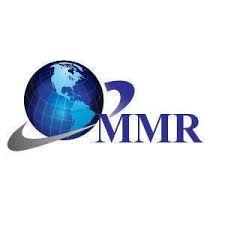Introduction
In a world where access to justice is often determined by financial means, legal aid and pro bono services play a crucial role in ensuring that everyone has the opportunity to seek legal assistance, regardless of their economic status. These services provide a lifeline for individuals and families facing legal challenges but lacking the resources to hire expensive attorneys. This article explores the significance of legal aid and pro bono services and delves into various options available for those seeking affordable justice.
Understanding Legal Aid and Pro Bono Services
What is Legal Aid?
Legal aid refers to the provision of free or subsidized legal assistance to individuals who cannot afford to hire private attorneys. It aims to bridge the justice gap and ensure that low-income individuals have access to legal representation when facing legal issues.
Exploring Pro Bono Services
Pro bono services involve legal professionals offering their expertise and services for free to individuals or organizations in need. These services are typically provided on a voluntary basis and are driven by the desire to give back to the community.
The Importance of Accessible Legal Assistance
Breaking Down Financial Barriers
One of the primary obstacles to justice is the cost associated with legal representation. Legal aid and pro bono services help eliminate this barrier by offering free or low-cost legal support to those who qualify.
Protecting Vulnerable Populations
Vulnerable populations, such as domestic violence survivors, immigrants, and the homeless, often face legal challenges that require specialized assistance. Legal aid and pro bono services ensure that these individuals receive the support they need to navigate the legal system.
Options for Legal Aid and Pro Bono Services
Nonprofit Legal Aid Organizations
Numerous nonprofit organizations are dedicated to providing legal aid to low-income individuals. These organizations have a team of skilled attorneys who offer their services free of charge or at a reduced cost.
Local Bar Associations
Many local bar associations have pro bono programs that connect individuals in need with volunteer lawyers. These programs may cover various legal issues, ranging from family law to housing disputes.
Legal Clinics
Law schools often run legal clinics where law students, under the supervision of experienced faculty members, provide legal advice and assistance to underserved communities.
Online Pro Bono Platforms
In the digital age, online platforms have emerged that connect individuals with pro bono attorneys. These platforms make it easier for those in need to find legal assistance without geographical limitations.
How to Access Legal Aid and Pro Bono Services
Assessing Eligibility
Before seeking legal aid or pro bono assistance, individuals must determine if they meet the eligibility criteria set by the respective organizations or programs.
Gathering Documentation
Applicants may need to provide proof of their financial status and legal issue to qualify for free or reduced-cost services.
Reaching Out for Assistance
Once eligibility is established, individuals can contact the relevant organizations or programs to initiate the process of receiving legal aid or pro bono services.
Navigate the realm of justice: Uncover pathways to accessible legal aid through pro bono services, while demystifying “Prohibited Steps Orders” to safeguard your legal journey.
Conclusion
Legal aid and pro bono services serve as beacons of hope for individuals facing legal challenges without the means to hire expensive lawyers. These services not only level the playing field but also reinforce the idea that justice should be accessible to all, regardless of socioeconomic status. Through the collaborative efforts of legal professionals, nonprofit organizations, and educational institutions, the path to affordable justice becomes clearer, ensuring a fair and just society for everyone.
FAQs
- Who is eligible for legal aid services? Eligibility varies by organization and jurisdiction, but it generally focuses on individuals with limited financial resources and specific legal needs.
- Can I choose my pro bono attorney? Depending on the program, you may have the opportunity to express preferences, but the final selection often depends on attorney availability.
- Are pro bono services of lower quality than paid legal services? No, pro bono services are provided by qualified legal professionals who are committed to offering the same level of expertise and dedication as they would with paying clients.
- Do online pro bono platforms have geographical restrictions? While some platforms are region-specific, others operate nationally or even internationally, allowing individuals to access legal assistance from various locations.
- How can I support pro bono initiatives? You can support pro bono initiatives by volunteering your legal expertise, making donations to organizations that provide these services, or spreading awareness about the importance of accessible justice










